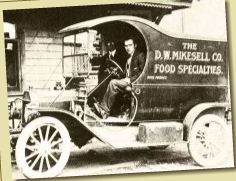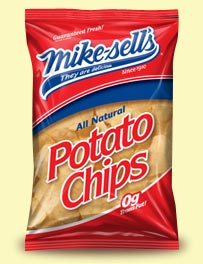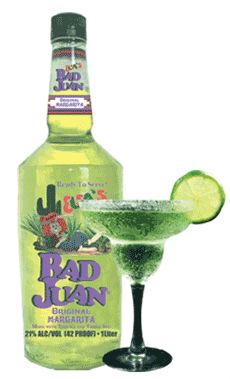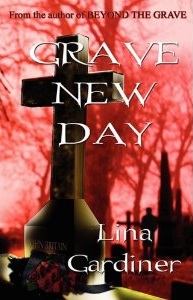Last summer when I got a new computer, my 10-year-old CD of Microsoft Office 2000 finally bit the dust. The disk had become corrupted; the files would no longer copy from it to install.
So I investigated alternatives. I ruled out the new version of Office immediately: we have Office 2007 at work, and I hate it. Most people who, like me, have been using Office for many years hate it too, or at least did until they resigned themselves to its new interface. Come on, the “ribbon” takes up way too much screen space, even on a big monitor. And I have to re-learn where everything is? Just give me back my damn menus!
Of course, there are older versions of Office for sale, unopened, on Ebay, some at great prices. But none were certified to run on Windows 7, which came with my new computer (and I’m quite happy with). Luckily, there’s also another alternative, for an even better price: OpenOffice. And it’s free – honest-to-goodness, legally, free. Just go to www.openoffice.org and download it.
It includes an alternative to each of the major components of Microsoft Office: Word, Excel, Powerpoint, and Access. It also comes with a drawing program.
The only part I’ve used enough to really evaluate is Writer, the Word-alternative. I’ve dabbled a bit with the spreadsheet, and so far, it seems like a decent facsimile of Office 2000’s Excel.
Which makes me happy, because I don’t need all the whiz-bang features Microsoft’s added to the later versions of Office. OpenOffice has most of them, but best of all, it has menus, not that silly ribbon interface.
Granted, not everything’s in the same place. For example, Word’s Track Changes feature is on the Revisions ribbon. In older versions, it was in the Tools menu. In OpenOffice, it’s in the Edit menu, and it’s simply called Changes. But if I have to hunt around for features, hey, I’d rather do it in a free program! (They do take donations, if you’re so inclined.)
I have run into a few problems with OpenOffice Writer, however. Most of these show up when I save a document in a format other than .doc (Microsoft Word 2003 and earlier) or .odf (OpenOffice’s native format). .rtf is the worst. I’ve seen it muck up line spacing, and change fonts – and the latter not consistently. It’s made the first letter of every paragraph – and only the first letter – a different font- sometimes even a Chinese character!
It also corrupted the .doc file of my manuscript for Time’s Enemy. I didn’t find this out until I sent it to my editor, and it crashed her system every time she tried to open it in Word. I thought this might have been due to the fact that she uses a Mac, but when I tried it on my daughter’s computer (which still has Word 2000 installed on it), that blew up, too.
Luckily I could still open it on my computer in OpenOffice, and copy the content, and re-save as an .odt file. I then opened it in Word at work, and resaved as a .docx file, which worked fine for my editor.
So is OpenOffice a true replacement for Microsoft Office? After a year, the jury’s still out. But hey, at least the price is right! Now all I have to do is find a newer version or replacement for Quickbooks, that will read my Quickbooks 2005 data…
Know of any accounting software I should check out? Or do you have a software WTF to share? Feel free to vent here – we feel your pain!


 They’ve been around since 1910, and claim to be the oldest potato chip company in the U.S. A quick Google search will reveal other claims that go back further, but Mike-sell’s is still a venerable, established brand. If you’ve ever lived in Dayton, or even visited, you’ve probably eaten them. They have several yummy flavored varieties, too. My favorite is the Mesquite Smoked Bacon flavor Groovy style chips. These used to be hard to find, other than in pizza parlors, but now they’re sold in some grocery stores.
They’ve been around since 1910, and claim to be the oldest potato chip company in the U.S. A quick Google search will reveal other claims that go back further, but Mike-sell’s is still a venerable, established brand. If you’ve ever lived in Dayton, or even visited, you’ve probably eaten them. They have several yummy flavored varieties, too. My favorite is the Mesquite Smoked Bacon flavor Groovy style chips. These used to be hard to find, other than in pizza parlors, but now they’re sold in some grocery stores. Mike-sell’s original potato and their Groovy chips contain three ingredients: potatoes, oil, and salt. One of Mike-sell’s distinctions is peanut oil. Until recently, the bags read “Made with 100% Peanut Oil… That’s Why They Are Delicious!” The bags still say “They Are Delicious!” but the ingredients now list “vegetable oil” in the ingredients, noting that it can include corn oil, sunflower oil, canola oil, and peanut oil. Considering how expensive peanut oil is, it’s no surprise – after all, there’s a lot of competition, and Mike-sell’s is not known as a gourmet brand, so a big price hike would kill sales. It’s kind of sad, because I can taste the difference: they’re a little-teeny-bit not quite as good. Still, they’re my number one choice, because yes, They Are Delicious!
Mike-sell’s original potato and their Groovy chips contain three ingredients: potatoes, oil, and salt. One of Mike-sell’s distinctions is peanut oil. Until recently, the bags read “Made with 100% Peanut Oil… That’s Why They Are Delicious!” The bags still say “They Are Delicious!” but the ingredients now list “vegetable oil” in the ingredients, noting that it can include corn oil, sunflower oil, canola oil, and peanut oil. Considering how expensive peanut oil is, it’s no surprise – after all, there’s a lot of competition, and Mike-sell’s is not known as a gourmet brand, so a big price hike would kill sales. It’s kind of sad, because I can taste the difference: they’re a little-teeny-bit not quite as good. Still, they’re my number one choice, because yes, They Are Delicious! 

 Elsa’s is a Mexican restaurant and sports bar that’s been a fixture in the Dayton area for decades. There are several locations: the original location on Linden Ave. on the east side of town, the second one on Far Hills Ave. in Centerville, Elsa’s Kettering, Elsa’s on the Border (of Dayton, Kettering, and Oakwood) and new locations are planned. The food is good, but the Bad Juans are what Elsa’s is well-known for.
Elsa’s is a Mexican restaurant and sports bar that’s been a fixture in the Dayton area for decades. There are several locations: the original location on Linden Ave. on the east side of town, the second one on Far Hills Ave. in Centerville, Elsa’s Kettering, Elsa’s on the Border (of Dayton, Kettering, and Oakwood) and new locations are planned. The food is good, but the Bad Juans are what Elsa’s is well-known for.
 The 4th of July is one of my favorite holidays. Not only do I like fireworks, explosives, and hanging out with friends and family, I also like it for the same reasons that Memorial Day was one of my friends’ mom’s favorite holiday: I don’t have to cook, clean, or buy presents for anyone. (The only reason my friend’s mom didn’t like the Fourth as much was because their house was on a parade route, so there were always guests.)
The 4th of July is one of my favorite holidays. Not only do I like fireworks, explosives, and hanging out with friends and family, I also like it for the same reasons that Memorial Day was one of my friends’ mom’s favorite holiday: I don’t have to cook, clean, or buy presents for anyone. (The only reason my friend’s mom didn’t like the Fourth as much was because their house was on a parade route, so there were always guests.) With ebooks, printing, shipping and shelf space are no longer applicable. A longer book may take up a few more bytes of disk space, and a couple more seconds for the reader to download, but disk space is continually becoming cheaper, to the point that it’s negligible. With increasing bandwidth and cell phone network capacity and speeds, download speeds don’t matter so much either. Where most publishers of genre fiction hesitate to take on books much longer than 100,000 words (epic fantasy and historical fiction being the main exceptions), publishers and sellers of ebooks aren’t operating under the same constraints. Likewise, few readers will plunk down enough cash for it to be worthwhile for a publisher to print a single novella or short story, but with production and shipping not part of the equation, ebooks are a viable medium for short fiction. So does word count matter?
With ebooks, printing, shipping and shelf space are no longer applicable. A longer book may take up a few more bytes of disk space, and a couple more seconds for the reader to download, but disk space is continually becoming cheaper, to the point that it’s negligible. With increasing bandwidth and cell phone network capacity and speeds, download speeds don’t matter so much either. Where most publishers of genre fiction hesitate to take on books much longer than 100,000 words (epic fantasy and historical fiction being the main exceptions), publishers and sellers of ebooks aren’t operating under the same constraints. Likewise, few readers will plunk down enough cash for it to be worthwhile for a publisher to print a single novella or short story, but with production and shipping not part of the equation, ebooks are a viable medium for short fiction. So does word count matter? Not too long ago, I ran across the phrase “90-minute market” – maybe it was on the Dayton Daily News website, an ad, or maybe something I was researching, I can’t remember. But I did remember what it meant, and where I’d first seen it: years ago, on a phone book cover. And 90-minute market was in reference to the fact that, whatever you’re looking for as a consumer in the Dayton area, you probably won’t have to drive more than an hour and a half to get there.
Not too long ago, I ran across the phrase “90-minute market” – maybe it was on the Dayton Daily News website, an ad, or maybe something I was researching, I can’t remember. But I did remember what it meant, and where I’d first seen it: years ago, on a phone book cover. And 90-minute market was in reference to the fact that, whatever you’re looking for as a consumer in the Dayton area, you probably won’t have to drive more than an hour and a half to get there. It’s true: for example, Dayton doesn’t have a zoo, but we’re within 90 minutes of two cities that do,
It’s true: for example, Dayton doesn’t have a zoo, but we’re within 90 minutes of two cities that do,  Considering that I write time travel romances, I also like to read them. Same goes for other types of paranormal romance – shifters, fae, vampires, witches, other worlds, psychic powers, etc. My favorites almost always involve a main character who is initially unaware of his/her paranormal abilities or nature, or who comes into these abilities in the beginning of the book and must learn how to use this special nature or power. But one problem I have with many of these books is that these characters believe too easily. They learn something about themselves that no reasonable person would easily accept, then boom! Hey, I’m a vampire, that’s great (or sucks), and off the story goes, no problem.
Considering that I write time travel romances, I also like to read them. Same goes for other types of paranormal romance – shifters, fae, vampires, witches, other worlds, psychic powers, etc. My favorites almost always involve a main character who is initially unaware of his/her paranormal abilities or nature, or who comes into these abilities in the beginning of the book and must learn how to use this special nature or power. But one problem I have with many of these books is that these characters believe too easily. They learn something about themselves that no reasonable person would easily accept, then boom! Hey, I’m a vampire, that’s great (or sucks), and off the story goes, no problem. One book I recently read where this was handled well was
One book I recently read where this was handled well was  Newcom Tavern was not the very first structure built when settlers first traveled up the Great Miami from Cincinnati, but it was one of the first built shortly after, when Dayton was first settled in 1796. In addition to being the new town’s hotel, tavern and meeting place, Newcom’s Tavern was also the city’s first post office, church, general store, courtroom, and jail. The proprietor, George Newcom, served as Montgomery County’s first sheriff after Ohio gained statehood in 1803. Early defendants were held in a dry well as they awaited their hearing in court, until the town built a proper jail the following year.
Newcom Tavern was not the very first structure built when settlers first traveled up the Great Miami from Cincinnati, but it was one of the first built shortly after, when Dayton was first settled in 1796. In addition to being the new town’s hotel, tavern and meeting place, Newcom’s Tavern was also the city’s first post office, church, general store, courtroom, and jail. The proprietor, George Newcom, served as Montgomery County’s first sheriff after Ohio gained statehood in 1803. Early defendants were held in a dry well as they awaited their hearing in court, until the town built a proper jail the following year. Newcom’s Tavern originally stood at the corner of Main and Water Street (now Monument Avenue), near the river. In 1965 it was moved to
Newcom’s Tavern originally stood at the corner of Main and Water Street (now Monument Avenue), near the river. In 1965 it was moved to